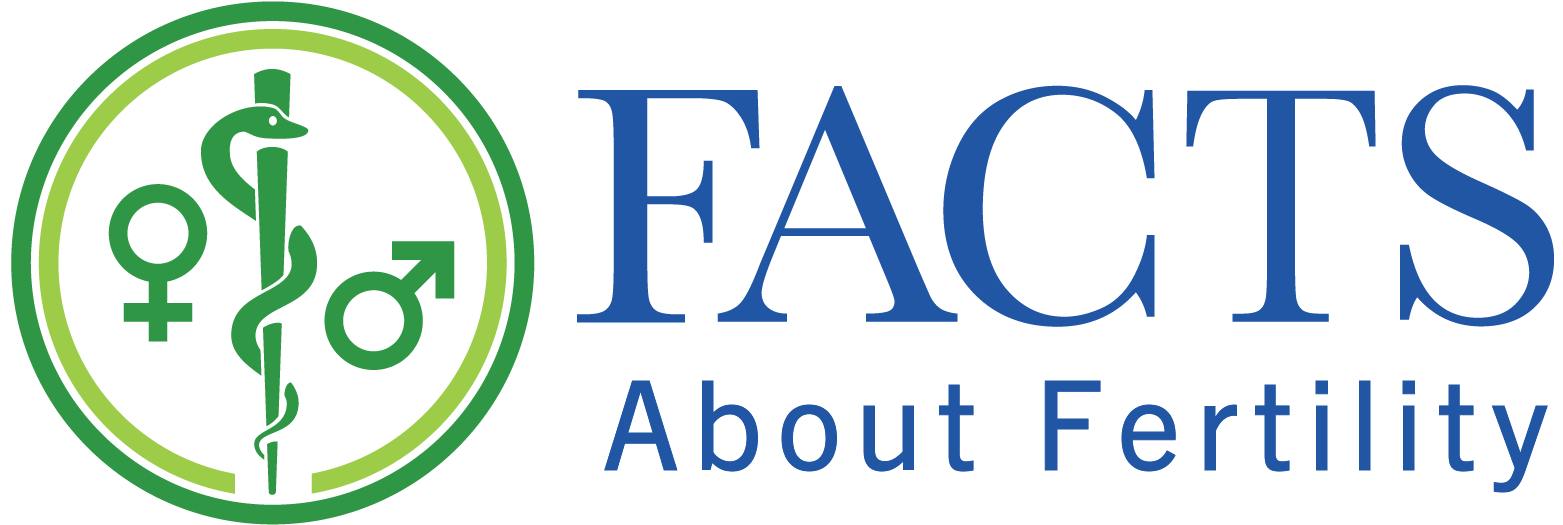By: Sara Meawad, DO
Editor’s Note : As a fourth-year medical student on the FACTS elective , Sara Meawad summarized the article by Panth et al titled, “The Influence of Diet on Fertility and the Implications for Public Health Nutrition in the United States.” [1] The comprehensive article brings to light the need to counsel all patients with infertility on the proven merits of lifestyle changes to enhance fertility in both women and men. To learn more about the impact of lifestyle choices on fertility, join us at the FACTS virtual conference coming up October 10-11, 2025!
Introduction
The article by Panth et al [1] summarized below aims to synthesize existing literature on the impact of various nutritional factors on fertility and to explore the public health implications of these findings in the U.S. The authors note that 15% of U.S. couples experience infertility, with 25% of these cases attributed to male infertility. Despite the increased utilization of assisted reproductive technologies (ART), infertility rates remain high. Consequently, research has focused on identifying modifiable risk factors, particularly nutrition, for both male and female infertility.
Evidence Supports Significant Dietary Impact on Fertility
Fertility Diet
The article presents evidence showing that dietary practices influence fertility. A diet aligned with the U.S. Dietary Guidelines for Americans, which emphasizes whole grains, healthy oils, vegetables, fruits, and fish, is linked to improved fertility in women and better semen quality in men. This positive impact on semen quality includes improved morphology, motility, and concentration. These findings are further supported by the Nurses’ Health Study (NHS) II, which suggests that not following the “fertility diet” before conception is a significant risk factor for infertility, accounting for 46% of infertility cases — a greater impact than factors like body mass index (BMI) and physical activity. This “fertility diet” consists of plant protein, full-fat dairy, iron, and monounsaturated fats.
“A diet … which emphasizes whole grains, healthy oils, vegetables, fruits, and fish is linked to improved fertility in women and better semen quality in men.”
Folate
The authors also discuss the role of folate in fertility, citing a study that found low folate levels are linked to lower fertility. Supplementation with folic acid (400 μg for three months) significantly increased pregnancy rates in subfertile women (26% in experimental group vs. 10% in placebo group). [2] Further research indicated that higher pre-pregnancy folate supplementation (> 730 μg/day) was associated with a reduced risk of spontaneous abortion compared to no folate supplementation. [2]
Healthy Fats
Red meat consumption was also examined, with evidence showing it negatively impacts fertility by reducing blastocyst formation during embryonic development and lowering semen concentration, likely due to its high saturated fat content. While red meat is a good source of iron, an essential nutrient to reduce the risk of ovulatory infertility, the article [1] recommends obtaining iron from non-heme sources, such as vegetables, and iron supplements. Additionally, higher omega-3 intake is linked to improved sperm morphology in men as well as increased pregnancy rates in women when combined with omega-6 and linoleic acid intake.
Dairy, Alcohol, Caffeine
Although evidence on the impact of dairy, alcohol, and caffeine on fertility remains limited, the NHS II study provides some insights. The study found that full-fat dairy was associated with a lower risk of ovulatory infertility, while low-fat dairy was linked to a higher risk. Although high caffeine (> 272 mg/day) and alcohol (> 22 g/day) intake did not affect ovulation or semen quality, they were associated with lower live birth rates for couples after ART when present in men. Interestingly, the study found that consuming ≥ 3 sodas per day was associated with a 52% lower pregnancy rate in women, while coffee consumption showed no such effect. This suggests it is not the caffeine in soda but rather the high sugar content that impacts fertility, which has already been shown to decrease semen quality in men. Its effect on women remains less well-studied. The article speculates that addressing the quantity and types of foods and drinks consumed could improve national nutrition guidelines.

“The study found that consuming ≥ 3 sodas per day was associated with a 52% lower pregnancy rate in women, while coffee consumption showed no such effect. This suggests it is … the high sugar content that impacts fertility.”
Other Considerations in Fertility Management
Weight
The NHS II also explored the effects of BMI on fertility, finding that both underweight and obese women with a BMI < 20 or ≥ 30 are at higher risk of ovulatory infertility. Moreover, women with a BMI between 30 and 35 have a higher risk of ART treatment failure. The NHS II study also found a positive correlation between male obesity and infertility risk, which was suspected to be secondary to endocrine dysregulation. Incorporating exercise and an ideal diet was found to improve sperm DNA fragmentation.
Notably, dietary changes consistent with the fertility diet reduced infertility risk similarly in all individuals regardless of BMI. This same effect was observed when exercise was incorporated, highlighting the importance of addressing diet and physical activity for all patients with infertility regardless of BMI. While prioritizing weight loss and nutritional counseling for patients with extreme BMI remains essential, expanding these services to all patients with infertility is warranted, as it demonstrably improves fertility across the board.
“Dietary changes consistent with the fertility diet reduced infertility risk similarly in all individuals regardless of BMI … highlighting the importance of addressing diet and physical activity for all patients with infertility regardless of BMI.”
Mental Health
The article [1] also discusses the relationship between infertility and mental health. Women with infertility are at higher risk for depression, and women with depression are more likely to experience infertility. Similarly, stress is associated with decreased semen quality in men. Interestingly, low folate levels have been linked to both subfertility and depression. Therefore, addressing low folate levels may improve fertility both nutritionally and by reducing the psychological burden associated with infertility, potentially increasing pregnancy rates. The authors emphasize the importance of integrating nutritional counseling into infertility psychosocial care, as this approach could simultaneously address the biological and psychological aspects of infertility.
Social Determinants of Health
Disparities in infertility prevalence are also discussed. Women with lower income and lower educational status, as well as Hispanic and non-Hispanic Black women, are more likely to experience infertility. These groups also tend to have lower diet quality and higher obesity rates, both of which are independent factors associated with infertility. Possible solutions to address these disparities include improving access to healthy foods by eliminating food deserts and making healthy foods more affordable. Additionally, the article suggests modifying Supplemental Nutrition Assistance Program (SNAP) policies to limit the purchase of foods that may contribute to infertility and incentivize the purchase of fertility-promoting foods.
Discussion
The article by Panth et al is highly relevant to the field of fertility awareness. It provides valuable, actionable information that empowers individuals to optimize their reproductive health and fertility. This article resonated strongly with the themes of the FACTS elective in fertility awareness, particularly in its comprehensive approach to infertility. Like the elective, this thorough article addresses both male and female factors affecting fertility and stresses the need to evaluate both partners when dealing with infertility. It also effectively addresses the multifaceted nature of infertility, considering biological, lifestyle, and psychosocial elements, which underscores the importance of exploring various avenues before referring couples for ART, highlighting the holistic approach that was the emphasis of this elective.
References
[1] Panth N, Gavarkovs A, Tamez M, Mattei J. The Influence of Diet on Fertility and the Implications for Public Health Nutrition in the United States. Front Public Health<. 2018;6:211. Published 2018 Jul 31. doi:10.3389/fpubh.2018.00211
[2] Westphal LM, Polan ML, Trant AS. Double-blind, placebo-controlled study of Fertilityblend: a nutritional supplement for improving fertility in women. ClinExpObstetGynecol.(2006) 33(4):205–8.
[3] Gaskins AJ, Rich-Edwards JW, Hauser R, Williams PL, Gillman MW, Ginsburg ES, et al. Maternal prepregnancy folate intake and risk of spontaneous abortion and stillbirth. Obstet Gynecol. (2014) 124:23–31. doi: 10.1097/AOG.0000000000000343
ABOUT THE AUTHOR
Dr. Sara Meawad
Dr. Sara Meawad, an internal medicine resident in South Carolina, graduated from the Philadelphia College of Osteopathic Medicine – South Georgia in Moultrie, GA. She completed her undergraduate education at the University of South Florida in Tampa, FL. She enrolled in the FACTS elective to gain a better understanding of natural family planning methods and ways to share these methods with future patients so they feel more empowered over their health and reproductive decisions.
Inspired by what you read?
You can support the ongoing work of FACTS here. To connect with a member of our team, please email development@FACTSaboutFertility.org. Interested in becoming an individual or organizational member? You can learn more and register here. To discuss with a member of our team, please email membership@FACTSaboutFertility.org.





